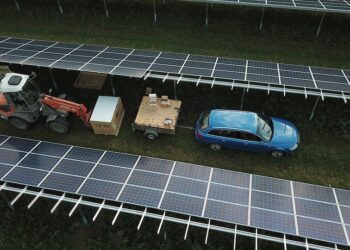Driving Toward a Greener Future: The Impact of Electric Cars on the Environment
As the world faces the growing threat of climate change, the need for sustainable transportation solutions has never been more urgent. One promising technology that has gained significant traction in recent years is electric vehicles (EVs). With their potential to reduce greenhouse gas emissions and dependence on fossil fuels, electric cars are driving us toward a greener future. In this article, we will explore the environmental impact of electric cars and how they can help combat climate change.
The Environmental Benefits of Electric Cars
Electric cars offer a range of environmental benefits that make them a more sustainable choice compared to traditional gasoline-powered vehicles. One of the key advantages of EVs is their zero tailpipe emissions. Unlike internal combustion engines, which release harmful pollutants such as carbon monoxide, nitrogen oxides, and particulate matter, electric cars produce no emissions while driving. This not only improves air quality in urban areas but also reduces the overall carbon footprint of transportation.
In addition to zero tailpipe emissions, electric cars are also more energy-efficient than gasoline-powered vehicles. According to the U.S. Department of Energy, electric cars convert about 60% of the electrical energy from the grid to power at the wheels, while conventional gasoline vehicles only convert about 20% of the energy stored in gasoline. This higher efficiency means that EVs require less energy to operate, resulting in lower overall energy consumption and reduced greenhouse gas emissions.
The Role of Renewable Energy
Another key benefit of electric cars is their compatibility with renewable energy sources. By charging their batteries with electricity generated from solar, wind, or other renewable sources, EV owners can further reduce their carbon footprint and support the transition to a cleaner energy system. As the grid becomes increasingly powered by renewable energy, the environmental benefits of electric cars will only continue to grow.
Furthermore, electric cars can also help reduce noise pollution in urban areas. Unlike traditional gasoline-powered vehicles, which produce engine noise and exhaust fumes, EVs operate quietly and emit no tailpipe emissions. This can lead to a quieter and more pleasant living environment for residents, especially in densely populated cities.
Common Questions About Electric Cars
As electric cars become more popular, many consumers have questions about their environmental impact and overall sustainability. Here are some common questions about electric cars and their answers:
Are electric cars really better for the environment?
Yes, electric cars are generally better for the environment compared to traditional gasoline-powered vehicles. EVs produce zero tailpipe emissions and are more energy-efficient, resulting in lower greenhouse gas emissions and reduced air pollution.
How do electric cars compare to hybrid vehicles?
Hybrid vehicles combine a gasoline engine with an electric motor, while electric cars run solely on electricity. While hybrids are more fuel-efficient than traditional gasoline vehicles, electric cars offer even greater environmental benefits due to their zero emissions and higher energy efficiency.
What is the environmental impact of manufacturing electric cars?
While the production of electric cars does have an environmental impact, studies have shown that over the lifetime of the vehicle, the emissions savings from driving an electric car far outweigh the emissions from manufacturing. Additionally, as the manufacturing process becomes more efficient and sustainable, the environmental impact of electric cars will continue to decrease.
Conclusion: A Sustainable Future with Electric Cars
Electric cars have the potential to revolutionize the transportation industry and play a significant role in combating climate change. With their zero emissions, energy efficiency, and compatibility with renewable energy sources, EVs offer a more sustainable alternative to traditional gasoline-powered vehicles. As the world shifts toward a greener future, electric cars will continue to drive us toward a more sustainable and environmentally-friendly transportation system.
By choosing electric cars and supporting the transition to cleaner energy, we can all contribute to a healthier planet and a more sustainable future for generations to come.












